What Might a Vegetarian Lack in Their Diet Vitamin
Veganuary is as much a part of New Year as post-Christmas fitness plans, fireworks and two-day Zoom-party induced hangovers. The data doesn't lie: the people behind the campaign, in which you're encouraged to shun all foods that are derived from animals for the first month of the year, say that 400,000o of us are taking part for 2021.
Aside from the eco-benefits of ditching dairy, meat and fish (around 41,200 tonnes of CO₂EQ, the same as 450,000 flights from London to Berlin could be saved from those 350,000 swerving animal products this month alone) there are also myriad health wins.
Current guidance from the World Health Organisation (WHO) states: 'Eat a nutritious diet based on a variety of foods originating mainly from plants, rather than animals,' while a plant-based has been associated with managing Type 2 diabetes.
But, says Dr Carrie Ruxton, who advises for the Health and Food Supplements Information Service, going vegan does come with its own health warnings. 'Many people start a vegan diet without doing any research at all. Simply cutting out whole food groups without prior planning isn't ideal, as most animal and marine foods are a good source of essential nutrients.'
'When I first went vegan, I felt great,' says nutritionist Mays Al-Ali. 'But, did you know that the body can store vitamins and minerals for up to a year – so you can be fine when transitioning to a vegan way of eating but, without the right nutritional knowledge deficiencies can arise?'
'I didn't connect feeling tired all the time, dizzy spells and my hair loss to my vegan diet. However, I discovered that my iron, zinc, selenium, iodine and omega 3 levels were really low.' Of course, once you know what's up, you can adjust your diet and supplementation to keep up that vegan life, minus the downsides.
To make sure you don't get into trouble this Veganuary, here's 10 nutrients that vegans are commonly deficient in – and how to make sure you're getting enough.
10 Vegan Deficiencies to be Aware of – and How to Nix Them
1. Calcium
No surprises here – after all, dairy is one of your dinner plate's top sources of calcium. And why do you care? Well, aside from the obvious – calcium is important for healthy, strong bones – this nutrient is also responsible for regulating muscle contraction, meaning it helps control your beating heart.
Nix It: Good vegan sources of calcium include kale, cavolo nero, almonds, oranges, red kidney beans, chickpeas and tahini, says Discover Great Veg nutritionist Pixie Turner. Plus, adds Keeley Berry, nutritional expert at BetterYou, it may pay to take a closer look at your alt-milk's label: 'Fortified plant-based milks supply a daily top-up of calcium, as well as vitamin D and B12 – just one cup provides around 35% of the nutrient reference value.'
2. Vitamin A
Feeling under par lately? Could be you're lacking in this immune-boosting and skin-glowing vitamin. It's largely found in eggs, oily fish and yoghurt – all no-go foods for those following a vegan eating plan.
Nix It: Think of any foods that are good sources of beta-carotene. Why? 'The body can convert beta-carotene into vitamin A,' reveals Turner. 'The main plant-based sources are green leafy vegetables, orange vegetables such as carrots and sweet potatoes, red vegetables including red pepper and yellow fruit like mango, papayas and apricots.'
3. Iron
Iron is essential for healthy red blood cell production – but findings from the National Diet and Nutrition Survey have shown that 27% of women do not get enough of it, putting them at risk of anaemia (symptoms of which include chronic tiredness and fatigue).
Iron comes in two forms: haem iron is found in meat and fish and non-haem iron is found in plant sources. Research has shown that non-haem iron is harder for the body to absorb.
Nix It: Don't let that minor scientific discovery get you down. 'Try to include one plant-based source of iron with every meal,' advises Healthspan registered nutritionist Rob Hobson.
'Such as beans, pulses, lentils, nuts, seeds, fortified breakfast cereals, tofu, tempeh, dark green leafy vegetables, dried fruit and dried spices. Partner them with a source of vitamin C (fruits, fruit juice, red peppers, broccoli) to help improve absorption and avoid drinking tea with meals as this can inhibit iron uptake.'
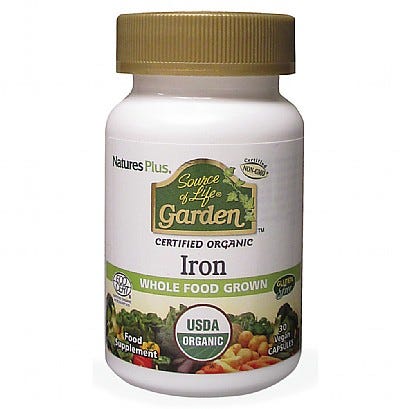
Nature's Plus Source of Life Garden Iron (30 caps)
4. Vitamin B12
If you're depleted in this vitamin, you're probably going to know about it. You may only need 2.4mcg of the stuff per day but drop below that and expect to experience everything from depression to tiredness and weakness.
'Vitamin B12 keeps nerve and blood cells healthy and prevents anaemia,' says Dr Natasha Fernando, a GP and head of clinical excellence at Medichecks. 'Vegans generally run at 7% below the recommended amount so it's a vitamin they really should keep an eye on.'
Nix It: 'We recommend considering vitamin B12 supplements because the only reliable vegan dietary sources are foods fortified with B12 such as plant milks, some soy products and breakfast cereals,' says Dr Fernando. 'Nutritional yeast can also help supplement vitamin B12 levels.'
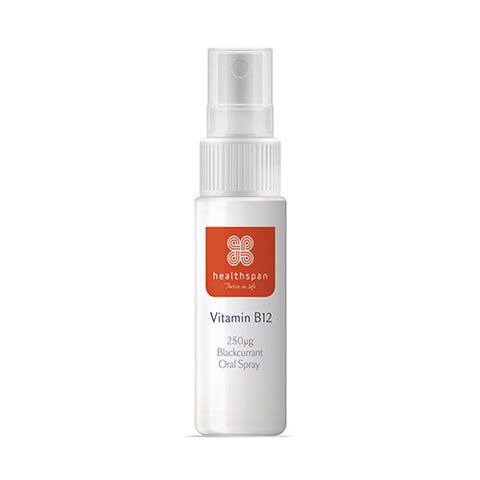
Vitamin B12 Blackcurrant Oral Spray
5. Omega-3
There's a reason why these bad boys – which are associated with the reduction of inflammation in the body (need we say more) – are referred to as 'essential' – they can only be obtained from your diet. 'The most important are called eicosapentaenoic acid (EPA) and docosahexeanoic acid (DHA), which are found predominantly in oily fish such as salmon,' Hobson says.
Nix It: This is one that the nutritionists agree is often best supplemented. 'Plants such as dark green leafy vegetables, seeds, seed oils, quinoa and nuts contain alphalinolenic acid (ALA), which the body coverts to EPA and DHA,' explains Hobson. 'Whilst these foods are a useful source of omega 3, the conversion in the body is poor so vegans may want to consider topping up their diet with a vegan Omega 3 supplement.'
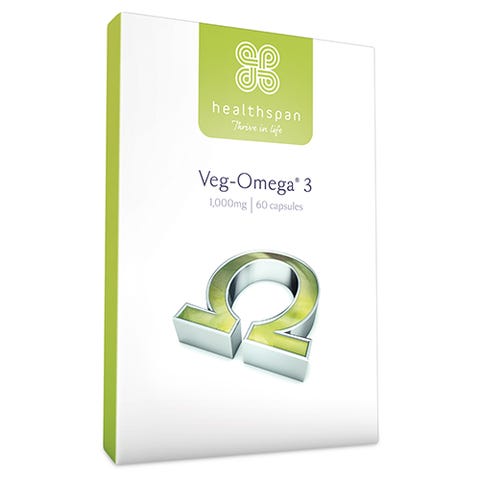
6. Zinc
According to Hobson, the richest sources of zinc are found in shellfish, meat and dairy foods – which are off the menu for vegans.
Nix It: Topping up is pretty straightforward, though – particularly if you're brunch go-to is still an avocado on seeded sourdough combo. 'Plant-sources of zinc include sourdough bread, oats, dark green leafy vegetables, lentils, seeds and tofu,' says Hobson. And avocados. 'Seeds are great to keep to hand; sprinkle them on salads or coconut yoghurt as a zinc booster.'
7. Choline
Not heard of this one before? Well, it's time to swot up. 'Choline is important for a healthy nervous system,' says Turner. 'The liver can make it in small amounts – but not in big enough quantities to meet the body's needs. The majority of it must be provided by your diet.'
Nix It: Fortunately, cruciferous vegetables such as kale, cavolo nero and broccoli are all good (and vegan) sources.
8. Iodine
If findings from the HSIS are anything to go by, chances are you won't have considered a deficiency in this nutrient either. We need this vitamin for normal thyroid function, growth and healthy metabolism. But, it's not one to overindulge in: too much has been linked to thyroid gland disorders.
Nix It: Seaweed is a good source of iodine – limit it to just once a week though. Alternatively, regulate your intake with a daily multivitamin or sea kelp supplement.
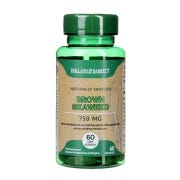
Holland & Barrett Brown Seaweed 60 Capsules 750mg
hollandandbarrett.com
£14.99
9. Vitamin D
Who isn't a little bit deficient in the 'Sunshine Vitamin'? In fact, as many as 40% of you could be on the road to vitamin D deficiency thanks to the winter months.
You should care about that because vitamin D is perhaps one of the most underrated vitamins being essential for maintaining muscle strength, reducing body fat, boosting the immune system, reducing your risk of depression (by around a third) and it is beneficial for anyone with type 2 diabetes, asthma, MS or breast cancer.
Nix It: Ensure you meet at least 10mcg daily by filling up on fortified foods and mushrooms; and, recommends dietitian Dr Ruxton, considering a supplement during Autumn and Winter.
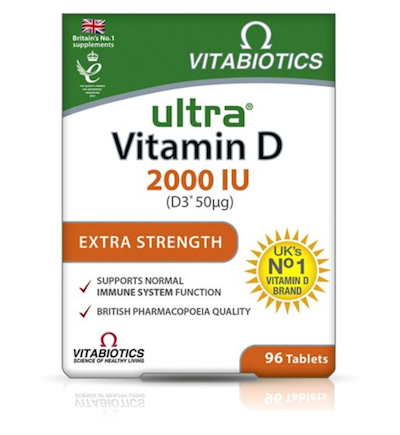
Vitabiotics Ultra Vitamin D 2000 IU Extra Strength
10. Protein
'This nutrient is not an issue in most people's diets especially those who eat meat, fish and eggs,' says Hobson. 'It's important to eat a wide range of protein foods on a vegan diet to make sure you get all of the essential amino acids as many plant-based foods such as beans, pulses, nuts and seeds are lacking certain ones.'
Nix it: His recommendations to ensure you tick all your amino acid boxes? 'Include a variety of plant proteins with every meal. These include nuts, nut butters, seeds, beans, pulses and lentils.
Those with a complete set of essential amino acids include quinoa, buckwheat (such as soba noodles), hemp seeds, chia seeds, tofu, tempeh, edamame beans, Quorn (vegan products in the range) and Ezakiel bread (from Jerusalem, made using beans, lentils and grains).'
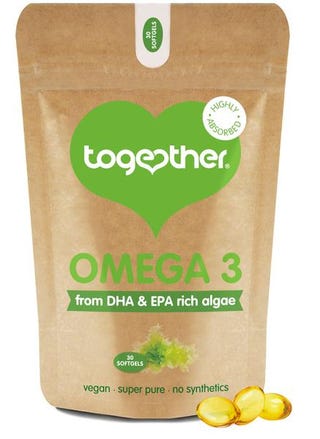
Omega 3 algae gels
togetherhealth.co.uk
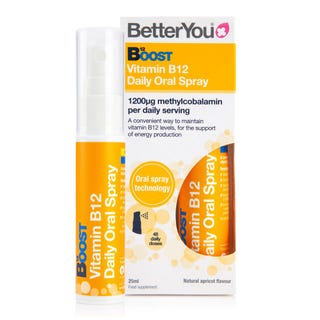
BetterYou Boost B12 Oral Spray 25ml
![Iron & Folic Acid Tablets [Amount : 90 Tablets] Iron & Folic Acid Tablets [Amount : 90 Tablets]](https://hips.hearstapps.com/vader-prod.s3.amazonaws.com/1609759836-11214984-1864620653909346.jpg?crop=1xw:1xh;center,top&resize=320%3A%2A)
Iron & Folic Acid Tablets [Amount : 90 Tablets]
Myvitamins myprotein.com
£9.99
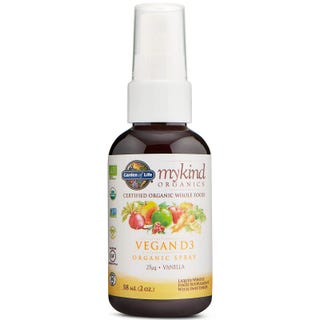
mykind Organics Vegan D3 Spray - Vanilla - 58ml
gardenoflife.co.uk
£16.75

Holland & Barrett Chewable Calcium 100 Tablets 500mg
Holland & Barrett hollandandbarrett.com
£6.99
![Zinc Tablets [Amount: :] Zinc Tablets [Amount: :]](https://hips.hearstapps.com/vader-prod.s3.amazonaws.com/1609759912-10575261-4474620652326861.jpg?crop=1xw:1xh;center,top&resize=320%3A%2A)
Zinc Tablets [Amount: :]
Myprotein myprotein.com
£6.99
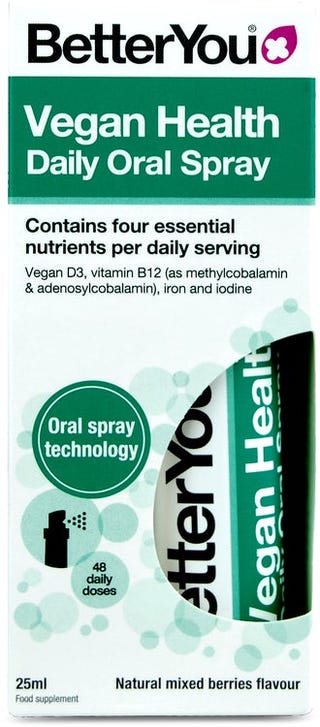
BetterYou Vegan Health Daily Oral Spray 25ml
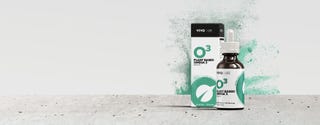
A Final Word: Meal Skipping
The HSIS also identified a worrying trend towards meal skipping amongst vegans: vegans skip 2.3 meals per week (compared to 1.9 meals amongst vegetarians).
'Meal skipping can place you at a greater risk of nutrient deficiencies,' says Dr Ruxton. 'An alarming 29% of vegans were found to not be taking any multivitamin or mineral supplements despite expert advice to the contrary – especially in regard to vitamin D, iodine, vitamin B12, selenium and, in targeted groups, omega-3 fatty acids.'
'Improved awareness of potential nutritional gaps – and how to avoid them – should be a clear priority for anyone following a vegan diet.'
Her tips for how to avoid nutritional gaps (apart from following the above advice):
- Read up on your new diet before you take the plunge. Check out the websites for the Vegan Society or the Vegetarian Society for advice on how to choose appropriate foods for a balanced diet.
- Borrow or buy a good vegan recipe book and have fun experimenting with new meals.
- Stock up on vegan-friendly staples: nuts and seeds, nut butters, tins of beans and pulses, fortified breakfast cereals and spreads, and fortified milk alternatives.
'And, if you start to notice any new health problems or feel excessively tired, make sure you see your GP or dietitian for advice.'
Like this article? SIGN UP TO OUR NEWSLETTER to receive your weekly dose of features.
This content is created and maintained by a third party, and imported onto this page to help users provide their email addresses. You may be able to find more information about this and similar content at piano.io
What Might a Vegetarian Lack in Their Diet Vitamin
Source: https://www.womenshealthmag.com/uk/food/healthy-eating/a30399170/vegan-deficiencies/